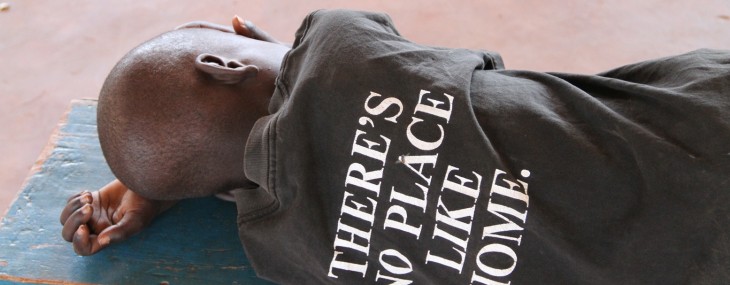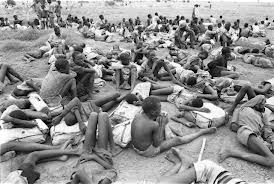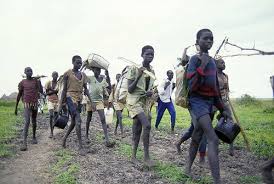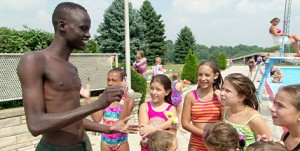I saw him in the gate area—a thin African man wearing an ill-fitting, mustard-brown suit. His cheeks glistened with tears, not just sweat, though it was warm in the waiting area. He seemed to be searching for someone on the other side of security, beyond the glass windows.
The Holy Spirit fluttered in my chest.
A voice on the overhead speaker announced the boarding process. I worked my way toward the back of the plane where masses of people crammed luggage into overhead bins and checked their cell phones in preparation for the long flight. As it turned out, my seat assignment was next to that distressed man.
The flight attendant helped him buckle his seatbelt. He didn’t understand her English. A few minutes later, he seemed a little frantic, not sure how to free himself from the confining strap. I touched his arm and pointed to mine. In a wordless demonstration, I released my buckle. He nodded with gratitude but did not make eye contact.
From my periphery vision, I saw him wiping away tears with an orange washcloth. Sometimes he covered his face with the soiled rag. Maybe he felt embarrassed. A crowded plane didn’t offer much privacy on the 8-hour flight from Entebbe, Uganda to Amsterdam.
When trays of food were served, he ate voraciously. Then he slept for a while. It gave me a chance to look at him more directly. He had small hands and thin fingers. Bony knees protruded from his roomy slacks.
I zeroed in on a white square plastic bag he held tightly on his lap. From my view, the letters were upside down. Still, I made out the words:Continue reading













